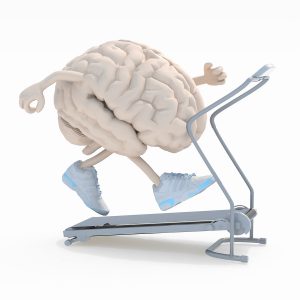 If you’re playing word puzzles or doing crosswords or Sudoku, don’t presume that’s all you need to do for brain fitness. For seniors who want to stay sharp, we would be wise to cross train our brains just like athletes cross train their bodies for sports. What do I mean by “cross training for brain fitness”? Glad you asked, because we are living in a time of great inventions and there is no lack of online programs for brain training. Read on for a list of brain fitness programs.
If you’re playing word puzzles or doing crosswords or Sudoku, don’t presume that’s all you need to do for brain fitness. For seniors who want to stay sharp, we would be wise to cross train our brains just like athletes cross train their bodies for sports. What do I mean by “cross training for brain fitness”? Glad you asked, because we are living in a time of great inventions and there is no lack of online programs for brain training. Read on for a list of brain fitness programs.
You may have heard about professional athletes who train with a wide diversity of activities in order to improve performance in their main sport. For example, a tennis player will also do weight lifting and running to improve their game on the courts.
Professional Athletes Cross Train Their Brains
Recently I read about Steve Curry who improves his on-court basketball skills through cognitive and visual training. The article makes the point that playing any sport requires advanced thinking, planning, and visual perception talents. And luckily, there are some great online programs to choose from to improve those skills.
While active seniors rarely need the highly refined skills of professional athletes (wouldn’t that be nice!), training in the same ways that athletes do would certainly improve our cognitive skills and preserve brain functioning. Science is beginning to see that developing one’s cognitive reserves aids in slowing the development of dementia in seniors.
Brain Fitness Programs Slow Memory Loss
According to Dr. Vernon Williams, MD, in an article in US News:
We don’t have to accept devastating memory problems as a fact of life as we get older. There’s plenty we can do right now to help maintain our memory function and enhance it. The even better news is that much of what we can do that will improve our memory and brain health is also good for the whole body—a win-win.
In other words, if I want to keep my brain as sharp as possible for as long as is possible, I should train it in multiple areas of cognitive function. That would include visual perception and interpretation, decision making, managing distractions, and maintaining focus, as well as training the ability to recall words and numbers.
Other ways to improve brain fitness is through eating the right foods, exercise, and quality sleep. Not only that, but by doing good things for the brain, I will also improve my physical health.
But doing only one activity such as cross word puzzles won’t do much for overall brain health. What’s needed is a variety of games or online programs that train all brain functions. That’s all possible with the following programs.
People who engage in challenging tasks such as reading, crossword puzzles, bridge, chess and travel tend to slow down their mental aging process significantly, However, to be effective, scientists say mental activity must become progressively more challenging. Otherwise, the brain adjusts and learns to perform repetitive tasks with less effort. To facilitate brain work outs, many online sites offer effective training tools.
New Technology Tools for Brain Fitness
Here are some online programs to help work out your brain. These are recommended by Sharp Brains, an excellent resource for the latest research on brain fitness advances.
- BrainBaseline: A free mobile app featuring dozens of cognitive tests that can be retaken over time, and that facilitate self-monitoring; brainbaseline.com/.
- BrainHQ: A Web-based cognitive training program that includes Useful Field of View (UFOV) training (UFOV is an important component of safe driving); brainhq.com/.
- Cogniciti: A free Web-based cognitive assessment designed to measure whether the test taker’s cognition is within a normal range given their age, or warrants a visit to the doctor; cogniciti.com/.
- CogniFit Senior Driver: A Web-based cognitive training program that assesses and trains for ten driving-related cognitive skills; https://lifestore.aol.com/category/online-learning/cognifit-senior-driver.
- HeartMath Inner Balance: A mobile Heart Rate Variability (HRV) sensor designed to help measure and regulate physiological stress; heartmath.com/innerbalance/.

Recent Comments